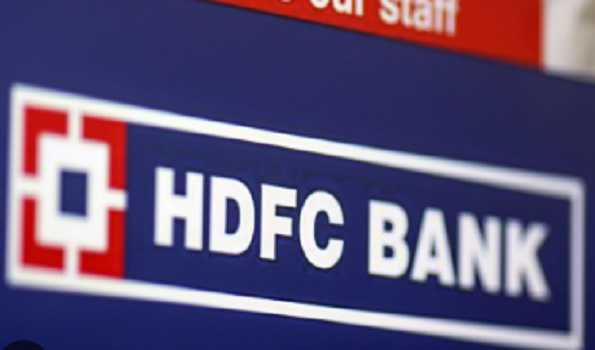NEW DELHI, Oct 28:
Concerned over rising cyber frauds and crimes, private lender HDFC Bank on Monday issued an advisory and asked customers to be cautious against “digital arrest fraud” with an aim to increase awareness about such fraud.
In a digital arrest scam, fraudsters target individuals or businesses, posing as law enforcement or government officials. Victims are threatened with a digital arrest warrant for alleged tax evasion, regulatory violations or financial misconduct, the Bank said in a release.
The fraudsters ask for payment in the form of ‘settlement fee’ or ‘penalty’ to withdraw the digital arrest warrant. Once the payment is made, the fraudsters disappear, leaving no trace of their identity. The victims are left with a monetary loss and sometimes an identity theft, due to the personal details shared with the fraudsters.
Cautioning on this fraud, Mr. Manish Agrawal, Senior Executive Vice President ? Credit Intelligence and Control ? HDFC Bank, said, “Fraudsters are directly targeting the emotions of the customers. When someone receives a call or message from fraudsters claiming to be law enforcement officers, always confirm their identity by independently contacting the government / law enforcement officials via proper channel,” the Bank said.
Staying vigilant and being aware of such fraudulent practices plays a very important role in avoiding falling prey to such scams, he added.
The Bank also listed few tips to protect yourself from Digital Arrest Fraud saying real government officials or law enforcement agency will never ask for payment or banking details.
Scammers often create a sense of emergency to make you act quickly without thinking, it said adding “do not share sensitive information such as KYC details, bank details like – user ID password, card details, CVV, OTPs or PIN number, with anyone.”
Always verify the officer’s identity by independently contacting the government official or law enforcement agency.
In the event that a person becomes the victim of any online fraud, they should immediately report the unauthorised transactions to the Bank in order to get the payment channel blocked, i.e., cards/UPI/net banking to safeguard against future losses.
(UNI)
Trending Now
E-Paper


